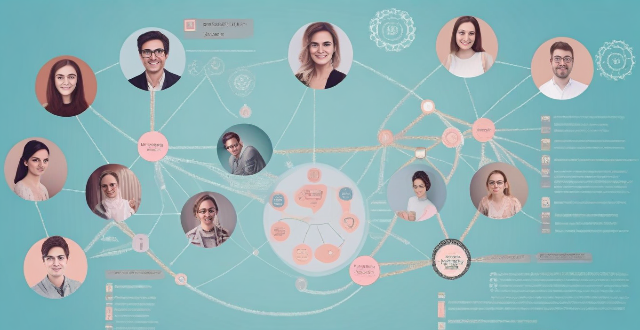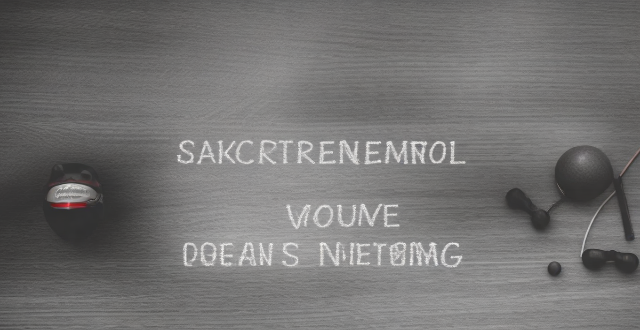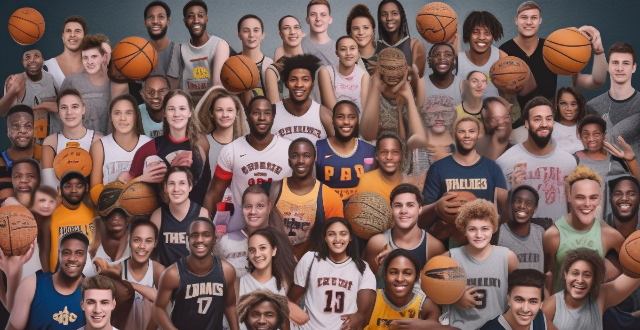Professional Career

What role does networking play in career planning and development ?
Networking is a crucial component in career planning and development. It involves building and maintaining relationships with people who can offer support, advice, and opportunities for professional growth. The importance of networking cannot be overstated, as it plays a significant role in various stages of one's career journey. One of the primary benefits of networking is that it helps individuals build professional relationships. These relationships can be with peers, mentors, or industry experts who can provide valuable insights and guidance. By establishing connections with these professionals, individuals can gain access to information about job openings, industry trends, and best practices. Additionally, having a strong network can help individuals navigate through challenging situations and make better decisions regarding their career path. Networking also provides opportunities for mentorship. Mentors are experienced professionals who can offer guidance, support, and advice to help individuals achieve their career goals. They can share their knowledge and expertise, provide feedback on work performance, and offer advice on how to advance in one's career. Mentors can also introduce individuals to new contacts within their network, expanding their reach even further. Another advantage of networking is that it provides access to information and resources that may not be readily available elsewhere. For example, attending industry events or joining professional organizations can expose individuals to the latest trends, technologies, and innovations in their field. This information can help individuals stay ahead of the curve and position themselves as thought leaders within their industry. Furthermore, networking can lead to collaborations and partnerships that can open up new opportunities for growth and development. Networking is essential for career advancement opportunities. Many jobs are filled through referrals from existing employees or other professionals within the company. Having a strong network increases the chances of being referred for job openings or recommended for promotions. Additionally, networking can help individuals identify potential employers or clients who share similar values and interests, making it easier to find fulfilling work that aligns with their passions and goals. Finally, networking plays a crucial role in personal branding. Building a strong personal brand requires consistent communication of one's skills, experiences, and accomplishments. Networking provides an opportunity to showcase these qualities to a broader audience, increasing visibility and credibility within the industry. By engaging with others in a professional manner and sharing valuable insights and experiences, individuals can establish themselves as thought leaders and experts in their field. In conclusion, networking is an integral part of career planning and development. It helps individuals build professional relationships, gain access to information and resources, find career advancement opportunities, and establish a strong personal brand. To maximize the benefits of networking, individuals should actively seek out opportunities to connect with others in their industry, attend events and conferences, join professional organizations, and engage with others on social media platforms. By investing time and effort into building a robust network, individuals can accelerate their career growth and achieve their professional goals.

What steps should I take to achieve my career goals ?
Achieving Your Career Goals: A Step-by-Step Guide outlines a comprehensive strategy for reaching professional objectives. It starts with defining goals by identifying interests, skills, values, and setting SMART objectives. Researching industries, networking, and understanding potential employers are emphasized. Acquiring relevant skills through education and developing soft skills is crucial. Gaining experience through internships, volunteering, and seeking mentorship is advised. Building a professional brand involves creating strong resumes, establishing an online presence, and active networking. Strategic job applications require customization and thorough interview preparation. Continuous assessment and adjustment of the career plan, staying informed, and being open to new opportunities are essential for success. Patience, perseverance, and adaptability are key traits for achieving career goals.

How can teacher training be tailored to support early career teachers versus more experienced educators ?
Teacher training is crucial for educators at all stages of their careers, but the needs of early career teachers differ from those of experienced educators. Early career teachers benefit from training focused on classroom management, curriculum development, instructional strategies, professional development, and mentorship programs. Experienced educators may seek training in advanced instructional methods, leadership development, technology integration, professional growth opportunities, and mentorship opportunities. Tailoring teacher training to meet the unique needs of both groups can be achieved through a variety of programs such as orientation workshops, coaching sessions, collaborative learning groups, online courses, advanced workshops, research collaborations, professional development retreats, and online learning communities. By providing tailored support, teacher training empowers educators to achieve excellence in teaching and positively impact student learning outcomes.

How does lifelong learning impact career development ?
Lifelong learning is a continuous process of acquiring new knowledge and skills that can significantly impact career development. It enhances skills, adaptability, creativity, personal growth, networking opportunities, and career longevity. By engaging in lifelong learning, individuals can stay relevant in their professions, adapt to changing job requirements, and increase their chances of career success.

What are the long-term effects of breaches in academic integrity on one's career ?
The long-term effects of breaches in academic integrity can be severe and far-reaching, including damaged reputation, limited career opportunities, and potential legal consequences. It is essential for students, researchers, and educators to uphold the principles of academic integrity to ensure the success of their careers and the integrity of their respective fields.

What resources are available for career planning and development ?
This text provides an overview of various resources available to support career planning and development. It covers online courses, networking opportunities, mentorship programs, job boards, personal development books and podcasts, coaching services, government and non-profit resources, university career services, company ERGs, and industry publications. These resources aim to enhance skills, expand networks, and keep individuals informed about opportunities that align with their career goals.

What steps can women take to build a strong professional network ?
Building a strong professional network is crucial for career growth and advancement. For women, it can be especially important as they often face unique challenges in the workplace. Here are some steps that women can take to build a robust professional network: 1. Attend industry events and conferences. 2. Join professional organizations and associations. 3. Utilize social media and online platforms. 4. Find a mentor or sponsor. 5. Participate in training programs and workshops. 6. Volunteer for committees or boards. 7. Stay in touch with colleagues and alumni.

How can women network effectively to expand their professional opportunities ?
Effective networking strategies for women include identifying goals, leveraging social media platforms, attending industry events, seeking mentorship, volunteering or joining professional associations, practicing active listening, and following up and staying connected. These steps help expand professional opportunities and foster meaningful connections.

How do academic competitions impact a student's future career prospects ?
Academic competitions play a crucial role in shaping students' future career prospects by developing essential skills, providing networking opportunities, and offering recognition and awards. These competitions foster critical thinking, time management, collaboration, and teamwork, which are highly valued by employers across all industries. Participating in academic competitions also allows students to connect with industry professionals and build professional relationships with their peers and competitors. Winning or performing well in these competitions can boost a student's resume and attract scholarships and grants for further education. Overall, academic competitions provide valuable experiences that can help students stand out to potential employers and lay the foundation for a successful career in their chosen field.

How does studying abroad impact a student's future career prospects ?
Studying abroad can significantly impact a student's future career prospects by enhancing cultural awareness, broadening educational horizons, providing professional advancement opportunities, and contributing to personal development. Students gain a global mindset, language skills, adaptability, and problem-solving abilities. They also benefit from academic rigor, research opportunities, independence, and confidence. Professionally, students expand their global network, gain employment advantages, and higher earning potential. Personally, they develop life skills such as time management and financial planning, along with cross-cultural competence and a desire for lifelong learning. Overall, studying abroad equips students with transferable skills that are highly valued by employers across various industries, positively influencing their career prospects.

How do I set realistic and achievable career goals ?
Setting realistic and achievable career goals is crucial for professional development. Here are the steps to do it effectively: 1. Self-Assessment: Understand your strengths, weaknesses, interests, and values. 2. Research and Exploration: Investigate qualifications, job market trends, and network with professionals. 3. SMART Goals: Set Specific, Measurable, Achievable, Relevant, and Time-bound goals. 4. Break It Down: Divide long-term goals into smaller, manageable short-term objectives. 5. Regular Review and Adjustment: Assess progress, make adjustments, and stay open to new opportunities.

What steps should I take to transition out of my sports career ?
Leaving a sports career can be challenging, but careful planning and self-reflection can help. Identify your interests and passions, build your network, gain new skills and education, create a plan, and seek support when needed.

How important is networking in advancing a career in sports coaching ?
Networking plays a vital role in advancing a career in sports coaching. By establishing connections, gaining knowledge and experience, building a professional reputation, accessing job opportunities, and collaborating on projects, coaches can enhance their skills and increase their chances of success in the competitive world of sports coaching.

How can I transition into a new career field or industry ?
Transitioning into a new career field or industry requires careful planning, research, and a willingness to learn new skills. To make the transition smoother, assess your skills and interests, research potential careers, gain relevant experience through courses, certifications, volunteering, or part-time jobs, update your resume and cover letter, and apply for jobs while preparing for interviews. By following these steps, you'll be well-prepared to make a successful transition into an exciting new chapter of your professional life.

What are some resources available for women looking to advance their careers ?
There are many resources available for women looking to advance their careers. These include professional networking organizations, online courses and certifications, mentorship and coaching programs, workshops and seminars, books and literature, and online communities and forums. By utilizing these resources, women can gain valuable knowledge and skills, make connections with other professionals, and receive guidance and support in their career development.
![How important is education for [insert celebrity name]'s personal and professional growth ?](/images/3nde/ba2ae69b-8180-4ecc-b44b-5004ff476ef3.png)
How important is education for [insert celebrity name]'s personal and professional growth ?
This topic summary delves into the pivotal role of education in shaping the personal and professional growth of [celebrity name]. It underscores how early education laid the groundwork for their character, social skills, and ethical values. Higher education is highlighted as a stepping stone towards specialized knowledge, networking, and career advancement. The commitment to lifelong learning beyond formal education settings is also emphasized, showcasing continuous efforts to stay relevant and adaptable. The discussion concludes by reiterating the transformative impact of education on [celebrity name]'s journey, suggesting its universal significance in fostering personal and professional development.

How can I stay motivated while working towards my career goals ?
The text provides a detailed guide on how to stay motivated while working towards your career goals. It emphasizes the importance of setting clear and achievable goals, breaking them down into smaller tasks, staying organized, finding inspiration, taking care of yourself, embracing challenges, seeking support, and celebrating your successes. The tips provided in the text are practical and actionable, making it easier for individuals to maintain focus and drive throughout their career journey. Overall, the text offers valuable insights and advice on how to stay motivated and achieve success in one's career.

How do I identify my strengths and weaknesses for career planning ?
This guide emphasizes the importance of understanding one's strengths and weaknesses for effective career planning. It outlines methods such as self-assessment, formal assessments, and leveraging feedback from others to identify these traits. The guide then suggests ways to use this information in choosing a career path, developing strengths, and addressing weaknesses. It encourages seeking opportunities for growth and not being afraid to ask for help.

What is the impact of sports on the career aspirations of young people ?
Text: The Impact of Sports on the Career Aspirations of Young People Introduction - Sports are integral to society and significantly impact young people's career aspirations. - This article explores both positive and negative aspects of sports' influence on career goals. Positive Impact 1. Development of Key Skills - Teamwork, leadership, perseverance, and other skills developed through sports are beneficial in any career. 2. Increased Confidence and Self-Esteem - Success in sports can boost confidence and self-esteem, making young people more likely to pursue ambitious career goals. 3. Exposure to Diverse Opportunities - Sports open doors to various career paths and scholarships for higher education. Negative Impact 1. Pressure and Burnout - Intense focus on sports achievements can lead to excessive pressure and burnout. 2. Limited Time for Other Activities - Dedication to sports training may leave little time for exploring other interests or developing skills outside of sports. 3. Injury Risks - The risk of injury is always present in sports and can hinder a young person's ability to pursue a sports-related career or affect overall employability. Conclusion - Sports have a profound impact on the career aspirations of young people. - While they offer numerous benefits, it is essential to be aware of potential drawbacks. - Balancing sports involvement with other activities and interests allows young individuals to make informed decisions about their future career paths while enjoying the benefits of sports.

What kind of salary can I expect as a physical therapist for professional athletes ?
The salary of a physical therapist for professional athletes varies depending on the level of experience, type of sports organization, and location. Entry-level positions can expect an average salary of around $60,000 per year, while mid-career professionals with 5-10 years of experience can earn around $80,000 per year. Senior professionals can earn salaries ranging from $100,000 to $150,000 per year or even more. Working for smaller sports organizations may result in a lower salary compared to larger organizations, which typically offer higher salaries and additional benefits. The location also plays a role in determining salary, with urban areas offering higher salaries due to greater competition for talent. It is important to research and compare salaries across different organizations and locations to determine what is fair and competitive for your skills and experience level.

What initiatives exist to support women's education post-secondary levels ?
Initiatives to support women's education post-secondary levels include scholarships and grants, mentoring programs, and networking events and conferences. The Fullbright Scholarships program provides funding for American students to study abroad and international students to study in the United States. The AAUW Community Action Grants are awarded to organizations or individuals who work with marginalized communities, such as low-income families or minority groups. L'Oréal For Women in Science Fellowships are designed to encourage young women to pursue careers in science. Mentoring programs specifically for women interested in pursuing careers in STEM fields pair female students with experienced professionals who can provide guidance and advice on navigating the challenges of a STEM career. Professional societies often have mentoring programs that connect early-career professionals with more experienced members of their field. Women in Technology conferences bring together female professionals working in tech-related fields to share knowledge and experiences. Women's Leadership Summits are designed to inspire and empower women leaders in various industries.

How do celebrities balance their personal lives and friendships while maintaining a successful career in the spotlight ?
Celebrities face challenges in balancing their personal lives and friendships with their careers. They use strategies such as setting priorities, open communication, setting boundaries, spending quality time, and building a support system to manage this balance. By implementing these strategies, celebrities can maintain successful careers while also leading fulfilling personal lives.

How can women balance their personal and professional relationships effectively ?
Balancing personal and professional relationships is a challenge that many women face in their lives. It requires careful planning, effective communication, and a strong support system. Here are some tips on how women can balance their personal and professional relationships effectively: 1\. Prioritize Your Time: Plan your day in advance, allocating time for work, family, friends, and self-care activities. This will help you stay organized and focused throughout the day. Learn to say "no" to unnecessary commitments and distractions that may interfere with your personal and professional life. 2\. Communicate Effectively: Discuss your needs and expectations with your partner, family members, and colleagues. This will help them understand your priorities and support you in achieving a healthy work-life balance. Don't hesitate to ask for help when needed. Whether it's delegating tasks at work or asking a friend to watch your child, having a support system in place can make all the difference. 3\. Practice Self-Care: Make time for activities that help you relax and recharge, such as exercise, meditation, or hobbies. Taking care of yourself will not only improve your physical and mental health but also enhance your relationships with others. Maintain healthy habits by eating well, getting enough sleep, and staying active to maintain your energy levels and overall well-being. 4\. Build Strong Professional Relationships: Attend industry events and conferences to expand your professional network and build relationships with colleagues and mentors who can offer guidance and support. Seek out mentors who can provide valuable insights into balancing personal and professional relationships, as well as offer guidance on career development. 5\. Embrace Technology: Take advantage of technology tools like calendar apps, task managers, and video conferencing software to streamline your workflow and stay connected with loved ones even when you're away from home. While technology can be helpful, it's important to set boundaries and avoid letting it consume too much of your time and attention. 6\. Remember Your Goals and Values: Always remember your goals and values when making decisions about how to spend your time and energy. This will help you stay focused on what truly matters most to you.

How do I become a professional athlete in basketball ?
To become a professional basketball player, start early, practice regularly, join a team or club, focus on academics and attend a good high school with a strong basketball program. Get recruited by a college program, excel in college, gain national exposure, hire an agent, and go through the draft process. Stay focused, maintain a positive attitude, and be willing to put in the work to achieve success.

What should be included in a sports career plan ?
A comprehensive sports career plan should include personal information, career objectives, skill development, education & training, competition history, sponsorship & funding, off-field activities, health & wellness, post-retirement planning, and a conclusion. It serves as a roadmap to guide athletes through their journey in sports, ensuring they are well-prepared for every stage of their career.
![Did [insert celebrity name] drop out of school to pursue their acting/music career ?](/images/3nde/389e75a9-686d-4943-a6f7-d9b486c73fbb.png)
Did [insert celebrity name] drop out of school to pursue their acting/music career ?
The article discusses whether [insert celebrity name] dropped out of school to pursue their acting/music career. It provides an overview of their early life and education, reasons for dropping out, and the consequences of this decision. The article concludes that while there were both positive and negative consequences, it ultimately depends on personal preference and priorities when deciding between education and pursuing one's passion.

Is there a difference in emotional management between casual and professional athletes ?
The text is a topic summary about emotional management in sports, focusing on the differences between casual and professional athletes. The article outlines key points related to self-awareness, self-regulation, and motivation for both groups. It notes that while both types of athletes must manage their emotions, professional athletes often have more structured approaches and greater motivation due to the high stakes involved in their careers. Casual athletes may benefit from adopting some of the emotional management strategies used by professionals but generally face fewer consequences if they fail to do so.

What role does nutrition play in sports career management ?
Nutrition is a critical component in managing a sports career, as it fuels performance, supports health, aids in weight management, and contributes to mental well-being. Athletes must focus on hydration, balancing macronutrients, ensuring micronutrient intake, timing meals appropriately, and judicious use of supplements. A personalized nutrition plan can optimize training, competition outcomes, and longevity in a sports career.

How important is mental health in managing a sports career ?
This article discusses the importance of mental health in managing a sports career. It explains how mental health affects an athlete's performance, recovery, team dynamics, off-field success, and personal growth. The article emphasizes that athletes with good mental health are more likely to set goals, work hard towards achieving them, and push through challenges. It also highlights the role of mental health in developing life skills that extend beyond an athlete's sports career. Overall, the article underscores the significance of prioritizing mental well-being for athletes to maximize their potential both as individuals and members of their teams.

What are the benefits of hiring a sports agent for career management ?
Hiring a sports agent can bring numerous benefits to an athlete's career management, including negotiating contracts and deals, marketing and branding assistance, legal representation, and career planning and development. By working with an experienced sports agent, athletes can focus on their performance while leaving the business side of their careers in capable hands.